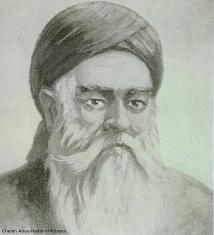History
Lebanon in the Period of Cheikh Abi Nader El Khazen
Written in year 2006
 In 1621, Emir Fakhr Al Din appointed Cheikh Abi Nader and his uncle Cheikh Abi Safi el Khazen governors of Bsharri and assigned them the whole country. Following this, Cheikh Abi Nader el Khazen and his relatives, Khazen Cheikhs, started developing Keserwan their county and confirm its status building churches and abbeys; they promoted the Catholic faith in areas they controlled whether in Mount Lebanon or else where; this boosted them fame and glory.
In 1621, Emir Fakhr Al Din appointed Cheikh Abi Nader and his uncle Cheikh Abi Safi el Khazen governors of Bsharri and assigned them the whole country. Following this, Cheikh Abi Nader el Khazen and his relatives, Khazen Cheikhs, started developing Keserwan their county and confirm its status building churches and abbeys; they promoted the Catholic faith in areas they controlled whether in Mount Lebanon or else where; this boosted them fame and glory.
Cheikh Abi Nader had a son called Abi Nawfal; a brilliant mind and excellent discretion led with rich experience in managing authority. Abi Nawfal was a Europeanised man and his father, Cheikh Abi Nader, relied on him majorly and assigned him critical issues whether in his presence or absence as to Emir Fakhr Al Din's governing and authority. Cheikh Abi Nader would send him to
In 1630, an earthquake caused great damage to the castle which led to the death of his son Cheikh Nawfal the first and his wife, a Hobeiche family daughter and mother of Cheikh Nawfal the first. A year after in 1631, Cheikh Abi Nawfal rebuilt the castle.
As a result of efforts of Cheikh Abi Nader and his son Cheikh Abi Nawfal, the country enjoyed prosperity and flourishing. But the Yamnies were still waiting for the fall of Emir Fakhr Al Din and encouraged authorities to declare war on him so in 1633, Sultan Murad the Fourth ordered Koujak Ahmed to send troops to defeat him. The troops came from
After success of such operation, Koujak triumphantly ordered them to be taken to
As for Cheikh Abi Nader's fate, he was released from where he was held,
After this dramatic change in the country's stability and the country became in chaos state, property and treasure which personalities owned and who had contacts with the Emir, were prohibited and taken from their reach. After execution of Emir Fakhr Al Din, Cheikh Abi Nader Cheikh Abi Nawfal his son and Cheikh Abi Khattar his brother left to
Two years later, the Khazen Cheikhs were on their way back home where Emir Melhem son of Emir Younis, brother of Emir Fakhr Al Din became ruler who released the seizure of their lands and treasures; a consensus was made and the nation admitted to the Khazen Cheikhs' rule again over their county, Keserwan; so the Khazen Cheikhs re-initiated their duty of developing it in the most efficient way.
In 1647, Cheikh Abi Nader had passed away as did Emir Fakhr Al Din where his secret to be preserved. His death caused great sadness and despair to people under his care and acquaintances but his enemies and strangers to him shared these feelings as well as he never agreed to appreciation and hostility was to be forgiven.